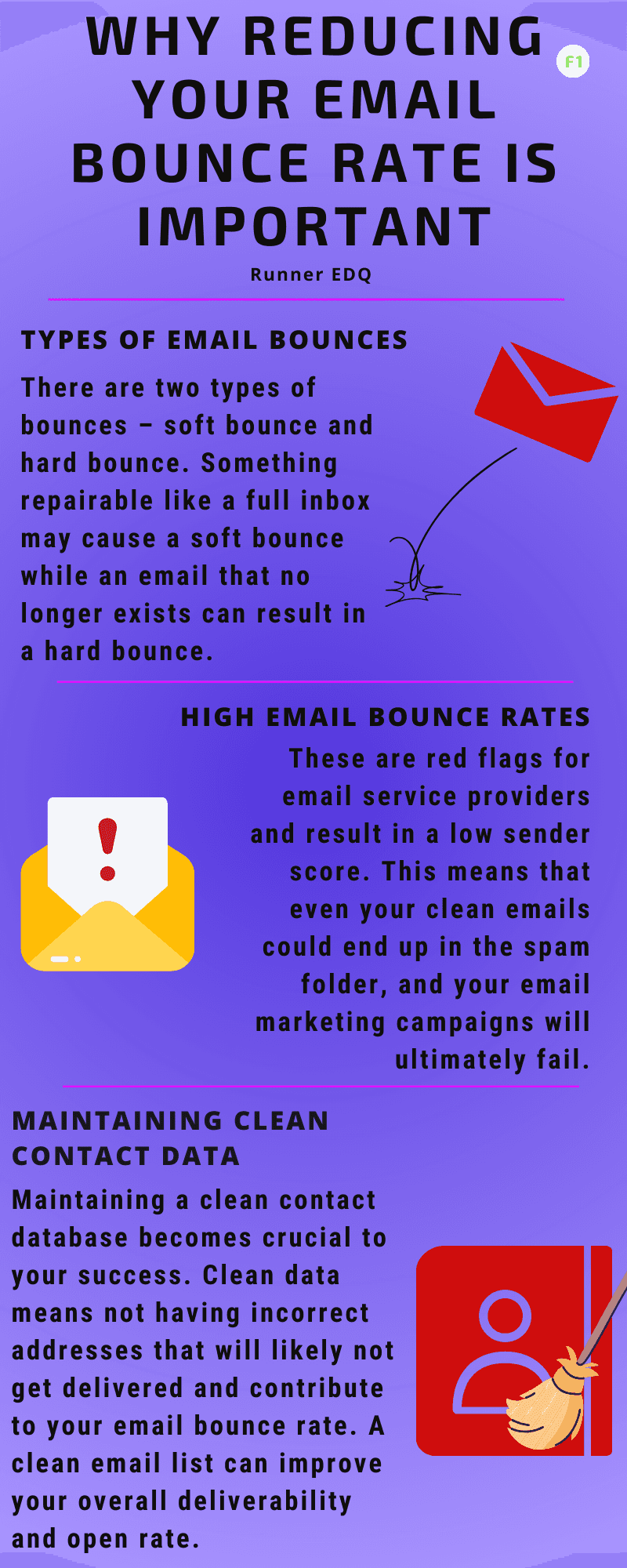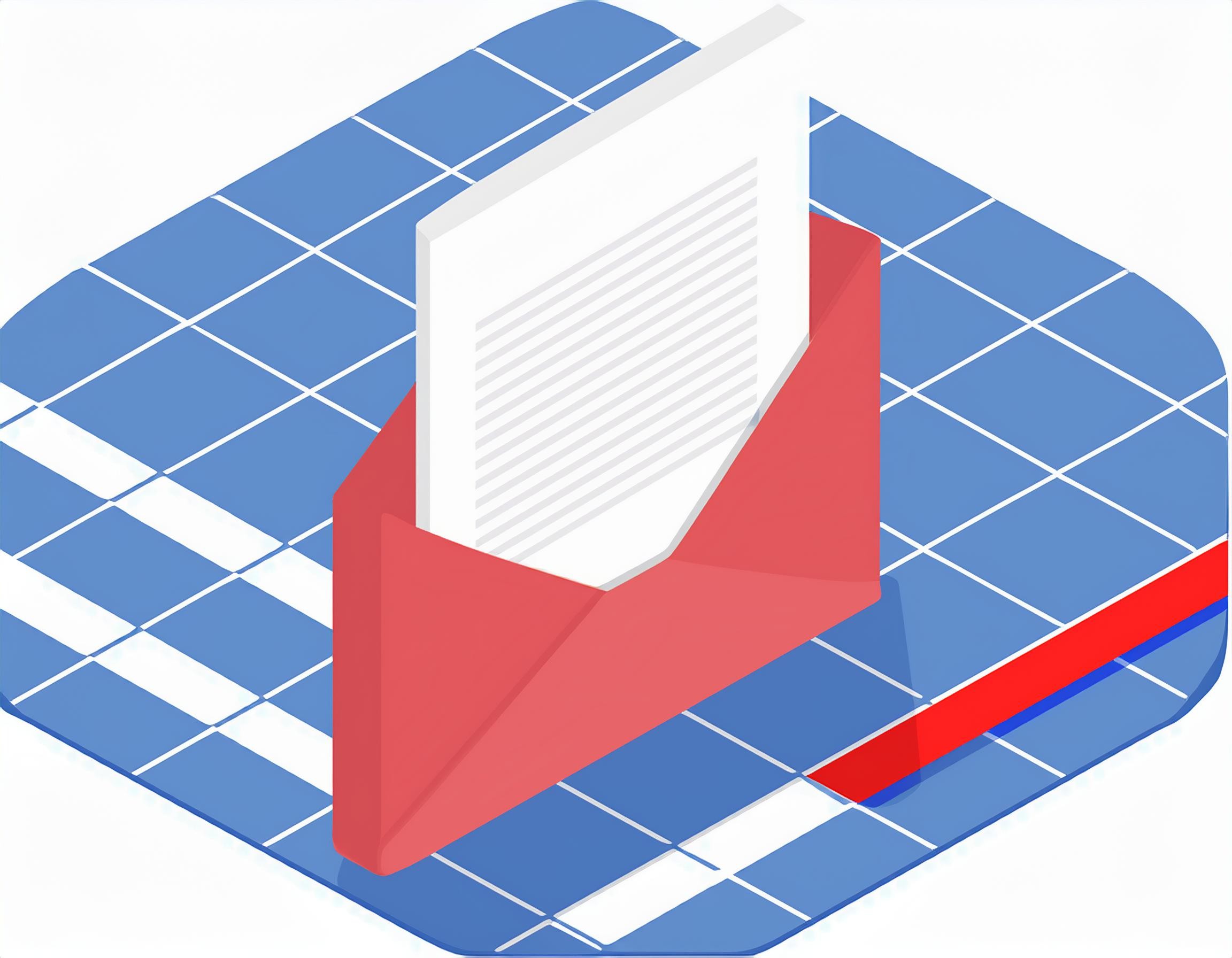Investigating the Impacts
3 MINUTE READ
Your email bounce rate is the percentage of email addresses that your campaigns could not deliver successfully. Most companies recognize 2% as the accepted benchmark for bounced emails. This means that only two of every 100 emails you send should be returned to you.
There are two types of bounces – soft bounce and hard bounce. There are many reasons an email may not be delivered successfully to the intended recipient’s inbox. One common reason for a soft bounce or an email being unable to be delivered due to a potentially temporary issue is a full inbox. Full inboxes are beyond your control. The system will make one or more attempts to deliver your email, and hopefully, the inbox will accept more incoming emails by its last attempt.
On the other hand, a hard bounce means the email cannot be delivered due to potentially permanent issues, such as the email no longer existing or the email address containing a typo that makes it invalid.High email bounce rates are red flags for email service providers and result in a low sender score. The lower your sender score, the more likely your emails will divert to your recipient’s spam folders. This means that even your clean emails could end up in the spam folder, and your email marketing campaigns will ultimately fail.
Maintaining Clean Contact Data
Because high bounce rates negatively impact your domain’s sender reputation, maintaining a clean contact database becomes crucial to your success. Clean data means not having incorrect addresses that will likely not get delivered and contribute to your email bounce rate. The cleaner your email list is, the more you can improve deliverability and open rate while decreasing unsubscribes and spam complaints.
Identify inactive or disengaged subscribers; these subscribers have likely not opened your emails in months or haven’t engaged. Inactive subscribers are those that haven’t opened your emails at all despite the email being delivered successfully. You can assume that these recipients are either not interested or no longer use that email address. Disengaged users, on the other hand, are those that receive your emails yet never engage with your campaigns, such as clicking on your links or responding to your calls to action. You may want to put disengaged subscribers in a separate list and try a new strategy to re-engage them, such as a personalized or attention-grabbing subject line.
Remove emails that have a hard bounce. An effective way to clean your contact list is through an email verification service that can ping each email to ensure it’s active. Email verification services can also improve deliverability by correcting typos and illegal characters, ensuring that the email address is correct. The service also helps protect your sender’s reputation by confirming only valid emails enter your systems.
Runner’s EDQ Email Verification Service can remove up to 95% of bad email addresses to increase deliverability, avoid high bounce rates and blocklisting, and protect your valuable sender reputation.







